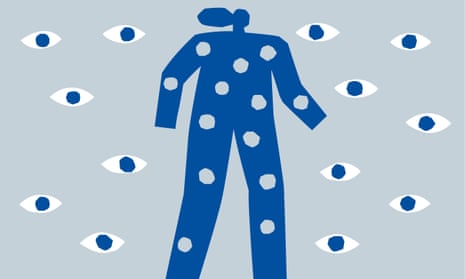“I thought that review was judgmental and talked about me as if I were an idiot and not a journalist and not somebody who has written bestselling books and award-winning articles,” said the (for the record) bestselling and award-winning writer Nancy Jo Sales on the Femsplainers Podcast, in what was definitely the most revealing interview I encountered last week. Sales, probably best known for her work in Vanity Fair, has written a book, Nothing Personal, about online dating culture, following on from her documentary, Swiped, and 2015 Vanity Fair feature on the subject. In all of her takes on this issue, Sales concludes that these apps are bad for women, and she bases this at least partly on her own experience: “I realised this is really not fun in the way sex is supposed to be. A lot of it is bad for women. The guy doesn’t know you or care about you,” she said in the interview.
I fully own up to not having read Sales’s book yet. But, judging from what she has said, I gather it focuses on her online dating experience, and she hasn’t particularly liked some critics’ take on that. The review she described as “judgmental” was in the New York Times, and her Femsplainers interview didn’t go much better. The interviewer, Danielle Crittenden, said maybe the reason Sales, 56, found the apps so dismaying was that, despite saying she was looking for “companionship”, she said in her dating profile that she was looking for men in their 20s, and she would then invite them over for casual sex.
“I feel judged by you and I feel slut-shamed by you,” Sales said, and then ended the interview.
That same day, Sinéad O’Connor was on BBC Radio 4’s Woman’s Hour discussing her memoir, Rememberings, which references her mental health issues. The host, Emma Barnett, mentioned that a critic once described O’Connor as “the crazy lady in pop’s attic”. O’Connor amusingly dismissed the description, but afterwards she tweeted that the interview had been “offensive and misogynistic”, citing that quote.
This reminded me of the furore back in 2017, when the writer Roxane Gay was promoting her book Hunger: A Memoir Of (My) Body. In the book, Gay describes the negotiations she has to make with the world as “a woman of size”, including once struggling to get up on stage for an event “while hundreds of people stared awkwardly”. Gay spoke to Mamamia, an Australian podcast. When the podcast was then put online, it was accompanied by this description, which clumsily attempted to mimic Gay’s tone in the book: “A lot of planning has to go into a visit from bestselling author, college professor and writer Roxane Gay. Will she fit in the office lift? How many steps will she have to take to get to the interview? None of this is disclosed with a mean spirit, it’s part of what Roxane writes about in Hunger.” Gay described this as “cruel and humiliating”, and the website apologised.
These days, no story is more valued than someone’s personal experience. I wrote more than a decade ago about the trend in journalism in which (often female) journalists cannibalise their own lives for copy, and this has bled into publishing. Mere fiction writers struggle to compete for attention against experience-based books about, say, dating (Dolly Alderton’s Everything I Know About Love), or motherhood (Eliane Glaser’s Motherhood: A Manifesto). Personal experience is seen as the final word. “This is my truth” is the mantra of the modern age.
But when you write about your personal experience, it becomes public property, and the public – and press – will have their own truths about your truth. This seems to take a lot of writers by surprise; they think they can talk about their experience but not be challenged on it. Ideally readers will have the sense to be sensitive, but not necessarily, and hearing how you describe yourself quoted back at you turns what once felt like confession or self-deprecation into something that feels more like an insult. Your own life is reframed by others, but it is no one’s job to endorse a writer’s interpretation of their experience, other than their publicist.
Since my book about my family came out last year, strangers have told me their thoughts on my relatives, which never fails to feel weird. Someone emailed recently that he thought I was wrong to say my Great Uncle Alex, a proud Zionist, would be disgusted with Israel’s politics today. My initial reaction was, “Um, who knew Alex here, pal, you or me?” But I’d turned Alex into a character in a book, so of course readers will have their own stories about him.
And soon they will have their own thoughts about me, now that I’m writing, yes, a memoir, this time about my teenage years in various psychiatric institutions. Maybe they’ll applaud my glorious triumph over the odds, or maybe they’ll sneer that I was an overindulged narcissist. That’s the risk you take when you monetise your life. Memoir writers should adhere by this maxim: better to have people questioning your interpretation of your life than to have no one talking about it at all.

